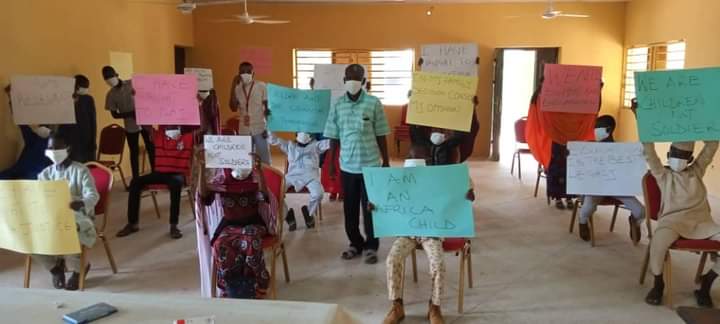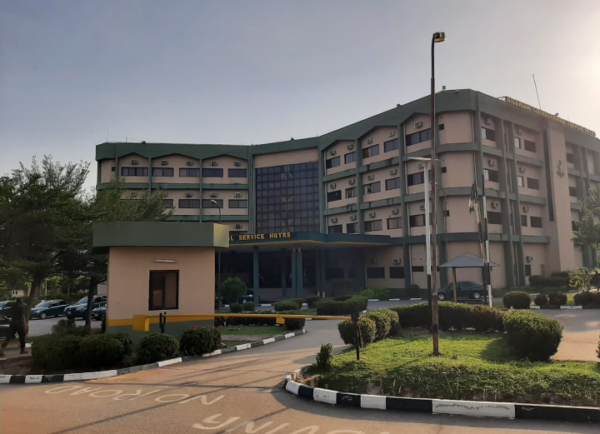Save the Children International (SCI), Nigeria, a child rights organisation, says the federal government should promote digital literacy to enable kids living in rural and conflict areas to access the internet.
In a statement issued on Friday to commemorate the Day of the African Child held annually on June 16, SCI said the government should implement more policies that will protect the rights of children while using the internet.
The Day of the African Child is observed across the continent to mark the death of those who lost their lives during the 1976 students’ protest on poor quality education in Soweto, South Africa.
“The digital space comes with huge opportunities and challenges for sure, but it brings more prospects if it is maximized for the growth and development of children,” the statement reads.
Advertisement
“The internet has provided invaluable opportunities for the realization of children’s fundamental rights and freedoms such as the right to education, freedom of expression, and freedom of association, among others.
“However, lack of access to the internet remains a primary challenge to children to meaningfully participating in the digital sphere, especially the children who live in the rural communities and conflict areas.”
Speaking on promoting digital literacy, Hamisu Mohammed, speaker of the Yobe state children’s parliament, said it is the duty of the government to ensure kids are protected against harsh online activities.
Advertisement
“Digital technology has increased access to education, entertainment, and socialisation for this generation. It is, therefore, our state government’s responsibility to ensure that children enjoy their rights to participation and protection online,” Mohammed said.
“In this digital age, children’s rights are no different from their rights in the physical world. We call on all stakeholders to provide and protect children’s rights in the digital space by promoting digital literacy among children.
“The digital environment in Nigeria has grown significantly in recent years, exposing children to a range of activities for their consumption and an integral part of their lives.
“According to the Nigeria Communication Commission survey, 2020, 93 percent of 11-16-year-olds and 45 percent of 4–10-year-olds go online with their own phones, indicating a high rate of phone ownership among children in Nigeria.”
Advertisement
Also speaking, Rita Shamiga, a girl champion of Save the Children International, Nigeria, said “everyone has equal rights and access to the digital community in ways meaningful to them”.
Shimaga said children have the right to digital space, e-learning and useful information, adding that they should not be deprived of participating in innovation.
According to the organisation, violations of children’s rights online can be addressed through the adoption and domestication of the AU convention on cybersecurity and personal data (Malabo convention).
On his part, Amanuel Mamo, director of advocacy, campaigns, communication, and media, at Save the Children International Nigeria, said creating a safe online space for children requires global collaboration.
Advertisement
“Unsafe use of the internet and the digital environment may expose children to risks that, unless managed properly, could undermine their protection, learning, mental and social well-being,” Mamo said.
“As the rapid take-up of digital technologies and social media by Africa’s children and young people continues, it is crucial to adopt an approach that minimizes the risks without restricting the considerable opportunities and benefits digital technologies and social media have to offer.
Advertisement
“The fight for a safe environment for children is a global collaboration patterned for local-national implementation and effectiveness.
“Hence, the government must ensure that many children have access to the internet for their learning and development purposes but at the same time ensure the strict guidelines for their safety and well-being while utilizing new information and communication technologies.”
Advertisement
‘ALLOW CHILDREN TO PARTAKE IN DECISION-MAKING THROUGH TECHNOLOGY’
The organisation called on the African committee of experts on the rights and welfare of the child (ACERWC) to allow the participation of children in decision-making processes through friendly digital technologies.
Advertisement
“We support that caregivers and teachers are sufficiently equipped to assist children in safely navigating the digital environment and training for members of law enforcement and the judiciary to empower them in order to comprehensively address issues of child online protection,” the organisation added.
“We ask that steps be taken to remove existing barriers faced by children with disabilities and other children from marginalized and vulnerable communities (including refugee children, IDPs, children affected by armed conflicts, etc.) in relation to the digital environment.”
Add a comment






